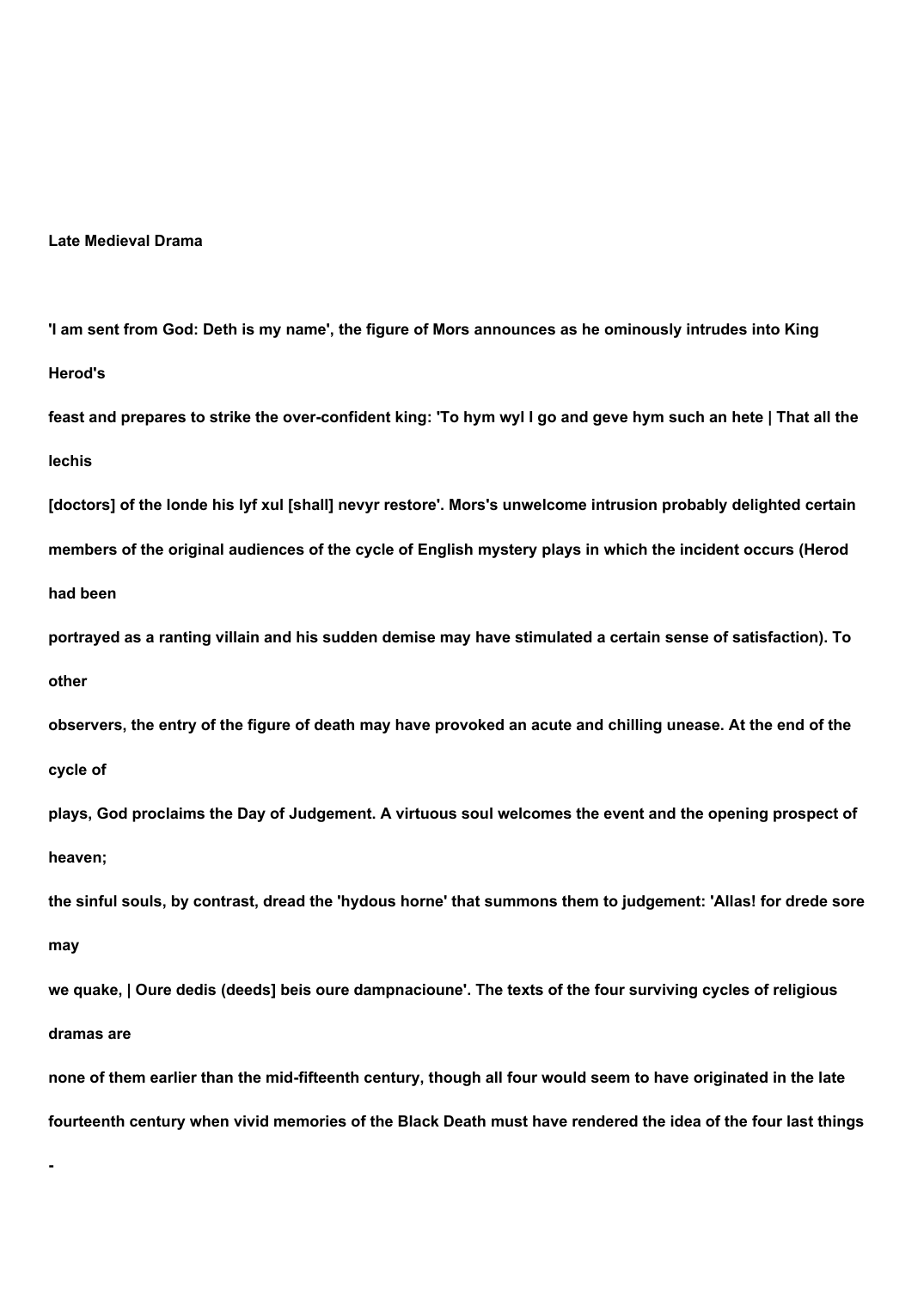historia teatro
Publié le 18/05/2020

Extrait du document
«
Late Medieval Drama
'I am sent from God: Deth is my name', the figure of Mors announces as he ominously intrudes into King
Herod's
feast and prepares to strike the over-confident king: 'To hym wyl I go and geve hym such an hete | That all the
lechis
[doctors] of the londe his lyf xul [shall] nevyr restore'.
Mors's unwelcome intrusion probably delighted certain
members of the original audiences of the cycle of English mystery plays in which the incident occurs (Herod
had been
portrayed as a ranting villain and his sudden demise may have stimulated a certain sense of satisfaction).
To
other
observers, the entry of the figure of death may have provoked an acute and chilling unease.
At the end of the
cycle of
plays, God proclaims the Day of Judgement.
A virtuous soul welcomes the event and the opening prospect of
heaven;
the sinful souls, by contrast, dread the 'hydous horne' that summons them to judgement: 'Allas! for drede sore
may
we quake, | Oure dedis (deeds] beis oure dampnacioune'.
The texts of the four surviving cycles of religious
dramas are
none of them earlier than the mid-fifteenth century, though all four would seem to have originated in the late
fourteenth century when vivid memories of the Black Death must have rendered the idea of the four last things
-.
»
↓↓↓ APERÇU DU DOCUMENT ↓↓↓
Liens utiles
- Piccolo Teatro.
- Traduction Pline l'Ancien Historia Naturalis
- JORGE MANRIQUE: HISTORIA Y POESÍA (Resumen)
- Vicenzo Scamozzi1552-1616De Vicence, élève de son père, commentateur de Serlio, termina de nombreuses entreprises dePalladio : le Teatro Olimpico (mur de scène, le théâtre de Sabbioneta, 1588-1589), la Rotonda(1606).
- Castas americanas - historia.


